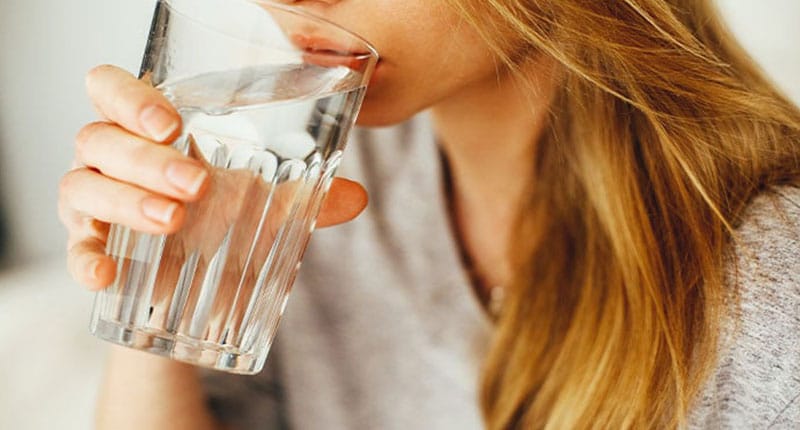
In our busy lives, amidst all the hustle and bustle, we often tend to overlook one of the simplest yet most crucial aspects of maintaining our health – staying hydrated. Water is the elixir of life, and ensuring that our bodies are adequately hydrated can have a profound impact on our overall well-being. In this article, we’ll delve into the various reasons why hydration is essential for optimal health and discover practical tips to help you stay adequately hydrated throughout the day.
Hydration isn’t just about quenching your thirst; it’s about fueling your body with what it needs to function optimally. Our bodies are composed of about 60% water, and every cell, tissue, and organ relies on this precious resource to perform their functions effectively.
The Significance of Hydration
Proper hydration plays a critical role in maintaining bodily functions such as temperature regulation, digestion, nutrient transportation, and joint lubrication. Without sufficient water intake, these processes can be compromised, leading to various health issues.
Understanding Dehydration
Dehydration occurs when your body loses more fluids than it takes in. This can happen due to sweating, urination, and even breathing. The early signs of dehydration include a dry mouth, darker urine, and feelings of thirst.
Effects of Dehydration on the Body
Dehydration can lead to a range of issues, from mild discomforts like headaches and fatigue to more severe complications such as kidney stones and urinary tract infections. Even mild dehydration can affect mood and cognitive function.
Hydration and Physical Performance
Staying hydrated is crucial for athletes and those leading active lifestyles. Dehydration can lead to decreased endurance, reduced strength, and impaired coordination. Drinking enough water before, during, and after physical activity can help maintain performance levels.
Hydration’s Role in Cognitive Function
Believe it or not, hydration can impact your brain function. Even mild dehydration can lead to difficulties in concentration, memory lapses, and decreased cognitive performance.
Optimal Hydration for Weight Management
Drinking water before meals can help control your appetite and support weight loss efforts. Sometimes, our bodies confuse thirst with hunger, leading to overeating. Staying hydrated can help prevent this confusion.
Hydration and Skin Health
Proper hydration contributes to healthy, glowing skin. Water helps maintain skin elasticity, flushes out toxins, and supports skin cell regeneration. Dehydrated skin can appear dull and may be more prone to wrinkles.
Factors Influencing Hydration Needs
Several factors affect how much water an individual needs, including age, activity level, climate, and overall health. Pregnant and breastfeeding women, as well as older adults, may have higher hydration requirements.
How Much Water Should You Drink Daily?
While the “eight glasses a day” rule is a good starting point, individual hydration needs vary. Listening to your body’s signals and adjusting your water intake accordingly is key. Thirst is a clear indicator that your body needs fluids.
Balancing Hydration with Other Beverages
While water is the best choice for hydration, other beverages like herbal teas and certain fruits can contribute to your fluid intake. However, caffeinated and alcoholic drinks can have diuretic effects, so moderation is essential.
Practical Tips to Stay Hydrated
- Carry a reusable water bottle with you.
- Set reminders to drink water throughout the day.
- Infuse your water with fruits for added flavor.
- Consume water-rich foods like cucumbers and watermelon.
Myths About Hydration
There are many misconceptions about hydration, such as the belief that only water counts or that thirst is the only indicator of dehydration. Clearing up these myths can help you make informed choices about your fluid intake.
Dispelling Hydration and Age Myths
Contrary to popular belief, older adults need just as much hydration as younger individuals. Aging doesn’t diminish the importance of staying hydrated; in fact, it may become even more crucial to support overall health.
Conclusion
Hydration is not just a simple act of drinking water; it’s a cornerstone of good health. From supporting bodily functions to enhancing cognitive abilities and maintaining skin health, staying hydrated is essential for our well-being. By making conscious efforts to drink enough water and understanding the factors that influence our hydration needs, we can unlock the numerous benefits of proper hydration.
FAQs
- Can I drink beverages other than water to stay hydrated? Absolutely! While water is the best choice, herbal teas and water-rich fruits can also contribute to your hydration.
- How do I know if I’m drinking enough water? Pay attention to your body’s signals. Thirst and pale yellow urine are indicators that you’re adequately hydrated.
- Does coffee or tea dehydrate you? Caffeinated beverages can have a mild diuretic effect, but they still contribute to your overall fluid intake.
- Can I drink too much water? While rare, excessive water intake can lead to a condition called water intoxication. Listen to your body and drink moderately.
- Are older adults more prone to dehydration? Yes, older adults are at a higher risk of dehydration due to changes in their body’s water balance. Staying hydrated remains crucial at all ages.
